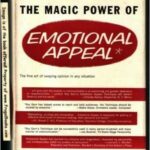We all like to think that people buy luxury items purely because they appreciate fine craftsmanship or superior quality. However, in truth, a significant motivator behind the purchase of high-status items, such as luxury cars, designer watches, or the latest tech gadgets, is status signaling. Humans are inherently social creatures, and signaling our success, power, and desirability to others has deep evolutionary roots. However, there’s another, more emotional reason why luxury purchases spike: low self-esteem.
When life throws us a curveball—such as a painful breakup, losing a job, facing foreclosure, or mourning a loved one—we often experience a dip in our self-esteem. Research has shown that during these emotionally vulnerable periods, people are especially prone to impulse-buying luxury goods in an effort to self-soothe and reclaim a sense of worth and control.
As a business owner or marketer selling luxury products, this psychological reality presents an opportunity—and a responsibility. While some might argue that marketing to vulnerable consumers is predatory, the truth is that understanding customer psychology enables businesses to offer solutions that truly make customers feel better, provided it is done ethically.
Related Post: How Can You Identify Viable Customers to Boost Your Business Growth?
A powerful strategy is to identify potential customers who are experiencing major life transitions. How do you do this without being invasive? It starts with open-ended questions that invite customers to share. For instance:
- “What brings you in today?”
- “Are you celebrating anything special?”
- “Is there a special occasion coming up?”
These questions not only create a more personal, empathetic conversation, but they also give customers the chance to reveal life events that may have shaken their confidence. By carefully listening and tailoring your message, you can position your product not merely as a luxury but as a meaningful step toward healing or reclaiming a sense of self.
Think about it: a watch isn’t just a timepiece; it’s a symbol of resilience. A luxury car isn’t just transportation; it’s a declaration that despite setbacks, you are moving forward in style. Marketers who frame their offerings as pathways to renewed self-esteem will naturally resonate more deeply.
Of course, integrity matters. Ethical marketing means ensuring that the product genuinely delivers the promised emotional or practical benefit. Overpromising or manipulating emotions to close a sale can damage your brand’s reputation long term.
In today’s hyper-connected world, buyers have more choices and more voice than ever before. Brands that connect authentically—especially when their customers are navigating tough times—can create not just a sale, but a loyal, lifelong relationship.
Has your customer experienced a significant life event that may make them more prone to emotional or impulsive buying? How can you ethically and empathetically help them rediscover their self-worth through what you offer?












